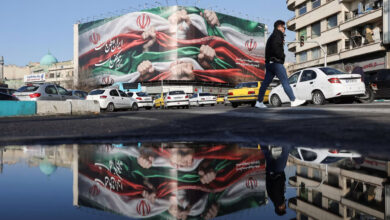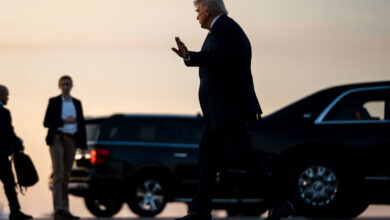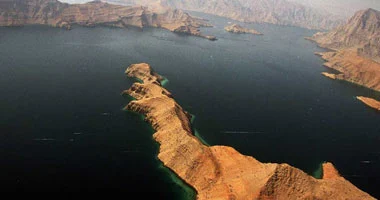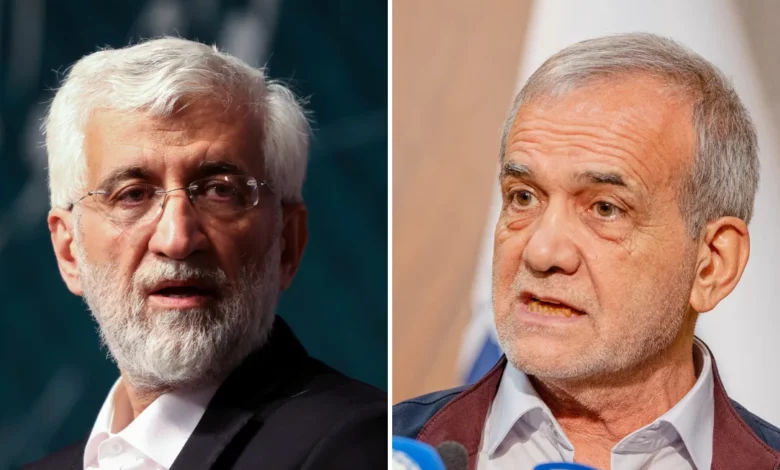
None of the four candidates secured more than 50 percent of the vote in Friday’s election, prompting a second round on July 5. The election saw the lowest voter turnout for a presidential election since the Islamic Republic was established in 1979.
Reformist lawmaker Masoud Pezeshkian and ultraconservative former nuclear negotiator Saeed Jalili, who received the most votes, will face off in the runoff, according to Mohsen Eslami, the spokesperson for the election committee.
Pezeshkian led with 42.5 percent of the votes, followed by Jalili with 38.6 percent, according to the state news agency IRNA. Out of 60 million eligible voters, 24 million cast their ballots, resulting in a 40 percent turnout, Eslami said.
The results will be reviewed by the Guardian Council, the powerful 12-member body tasked with overseeing elections and legislation, before the two candidates start campaigning again.
The snap election was held after Iranian President Ebrahim Raisi died in a helicopter crash on May 19 in the country’s remote northwest, along with Foreign Minister Hossein Amir-Abdollahian and other officials.
Two conservatives dropped out of the race just a day before the elections to help the hardline candidates consolidate the conservative vote.
Pezeshkian was the only reformist candidate after dozens of other contenders were barred from running by the Guardian Council.
The Iranian electoral process has been marred by voter apathy of late, causing embarrassment to an establishment that has relied on high voter turnout to bolster its democratic credentials and popular legitimacy.
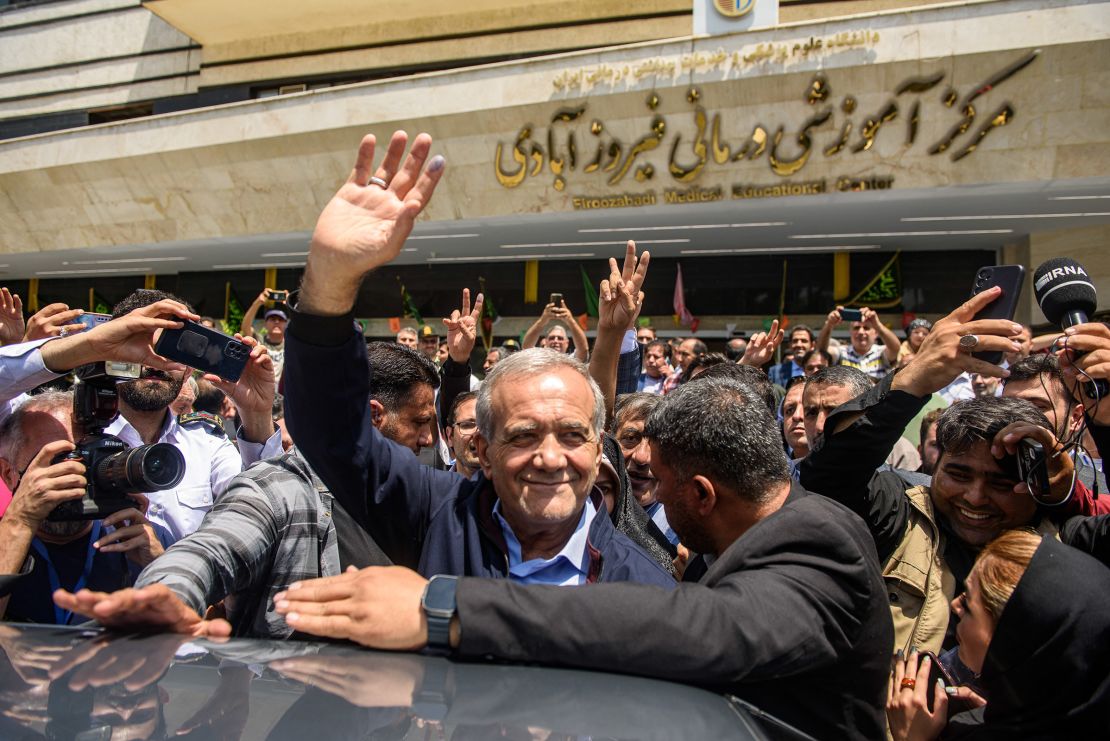
Nationwide discontent was evident in low voter turnout in both parliamentary and presidential elections in recent years. While Iran has boasted exceptionally high voter participation, its last legislative election in March recorded the lowest turnout since in 1979, despite government efforts to rally voters ahead of the ballot.
Iran’s Supreme Leader Ayatollah Ali Khamenei urged Iranians to head to the polls and vote after he cast his ballot in the election on Friday morning.
“People’s participation is part of the essence of the state and continuation of the existence of the Islamic Republic and its status in the world is tied to people’s participation”, he said.
Sina Toossi, an Iran analyst and senior fellow at the Center for International Policy in Washington, DC, said Pezeshkian may have been allowed to run in the elections in an attempt to boost voter turnout.
“This move could be seen as a strategy to create a more dynamic and engaging election process, thereby encouraging greater public participation,” he told CNN.
Who is Masoud Pezeshkian?
The two candidates set to compete in the next round of elections represent opposite sides of Iran’s political spectrum, and both have run for presidential elections unsuccessfully in the past.
A health minister under reformist president Mohammad Khatami, Pezeshkian is a trained heart surgeon and lawmaker.
He gained prominence for his stance against the crackdown on the 2009 pro-democracy protests and violence perpetrated by the morality police in 2022 following the death of a young woman in police custody after she was detained for not adhering to the Islamic Republic’s strict dress code for women.
During the 2022 protests, Pezeshkian said in an interview with Iran’s IRINN TV: “It is our fault. We want to implement religious faith through the use of force. This is scientifically impossible.”
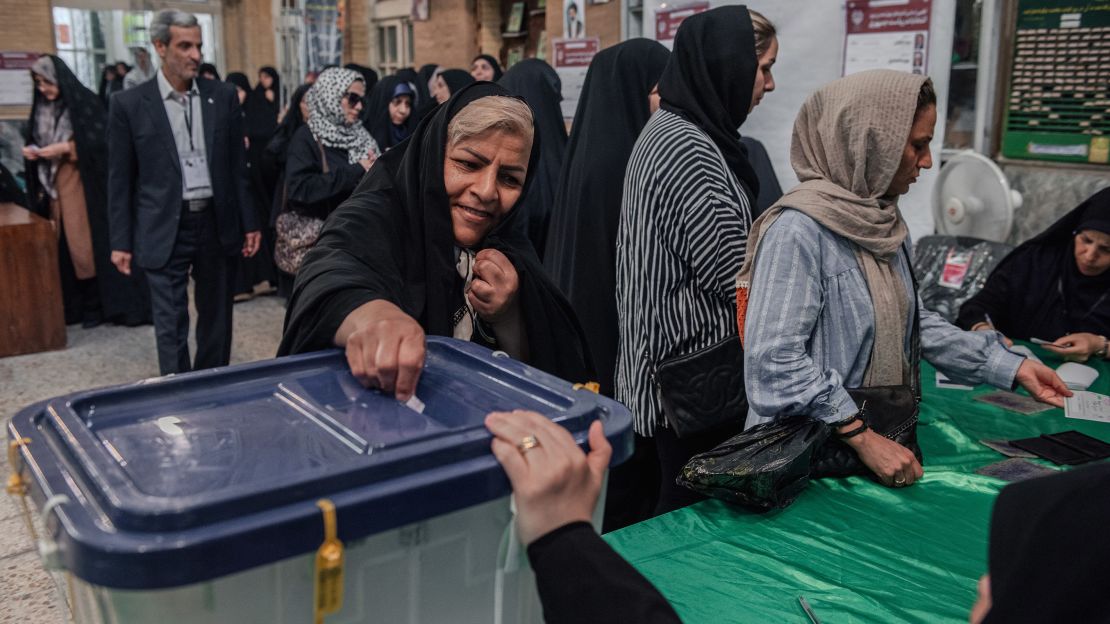
After losing his wife and one of his children in a 1994 car crash, he devoted much of his time to politics. Pezeshkian ran for president in the 2013 and 2021 elections, but failed to make headway.
The 69-year-old hails from an ethnically mixed family – his father is Azeri and his mother is Kurdish. Persian isn’t his mother tongue. That has burnished his image for Iran’s minorities but left him open to xenophobic attacks from some opponents.
A more moderate face in the presidency could make it easier for Western states to have conversations with Iran, particularly on the nuclear issue, regional issues and trade, Vali Nasr, a Middle East academic and former adviser to the US State Department, told CNN.
Ahead of Friday’s vote, however, Khamenei condemned those seeking improved relations with the West. Pezeshkian has publicly stated that he would defer to Khamenei on matters of foreign policy.
Who is Saeed Jalili?
Jalili is an ultraconservative hawk known for his uncompromising dealings with the West. He is a longtime top security adviser to Khamenei and a former soldier with the Islamic Revolutionary Guard Corps (IRGC) during the decade-long Iran-Iraq war.
As lead negotiator of the landmark 2015 nuclear agreement between Iran and world powers, he spearheaded Tehran’s efforts to win sanctions relief in exchange for controls on its nuclear program. He emerged as a hard-headed opponent, often lecturing US officials on Iran’s rights during negotiations in Geneva.
Iranian media outlets describe him as “a firm and meticulous negotiator who did not make concessions” during nuclear negotiations, believing Iran’s economic development should not depend on “foreign will,” lines echoed by the Supreme Leader ahead of the Friday vote.
Jalili unsuccessfully ran for the 2013 presidential election. He ran again in 2021, but withdrew in favor of Raisi, who eventually won.
Nasr, the Middle East academic, says that with Friday’s election, the clerical establishment in Iran may have been rethinking what the last presidential election produced. Under Raisi, he says, “the entire system became uniformly hardline, conservative.”
Arash Azizi, an Iranian writer and fellow at the Center for Middle East and Global Order (CMEG), said that “a victory by the fundamentalist Jalili” would complicate efforts to restart negotiations with the West.
Escalating tensions
The elections came at a delicate time for the Islamic Republic. The country is embroiled in escalating tensions with Israel and its Western allies, triggered by the war in Gaza and the advancement of Iran’s nuclear program.
The vote also takes place just two months after Iran and Israel exchanged fire for the first time as the Gaza conflict widened. Israel is now preparing for a potential second front with Hezbollah, Iran’s primary regional proxy, in Lebanon.
Azizi said Iran’s shadow war with Israel “will go on regardless of who wins” as the most important decisions in that regard are taken by Khamenei and security bodies, not the president.
The country’s Supreme Leader is the final arbiter for most decisions in Iran, but the elected president will be the face of the Islamic Republic abroad.
Iran’s fight with the US has left the economy in tatters, crippled by years of American sanctions, a weakening local currency and high inflation.

